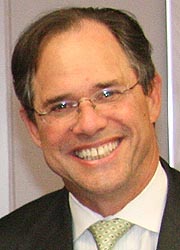December 20 - South Carolina Seceded from the United States
South Carolina Didn't Secede Because of States' Rights - It Denounced States Rights
The Only Reason for Secession was Protection of Slavery
In its "declaration of independence" South Carolina denounced other states for passing laws it didn't like because they were in opposition to federal laws. South Carolina made it clear that there was only one reason it was seceding, to protect slavery. All we have to do is look at the words the South Carolina secessionists wrote themselves to explain why they were taking this action.
From the "Declaration of the Immediate Causes Which Induce and Justify the Secession of South Carolina from the Federal Union":
"an increasing hostility on the part of the non-slaveholding States to the institution of slavery, has led to a disregard of their obligations"
"The States of Maine, New Hampshire, Vermont, Massachusetts, Connecticut, Rhode Island, New York, Pennsylvania, Illinois, Indiana, Michigan, Wisconsin and Iowa, have enacted laws which either nullify the Acts of Congress or render useless any attempt to execute them."
"Those States have assume the right of deciding upon the propriety of our domestic institutions; and have denied the rights of property established in fifteen of the States and recognized by the Constitution; they have denounced as sinful the institution of slavery"
"A geographical line has been drawn across the Union, and all the States north of that line have united in the election of a man to the high office of President of the United States, whose opinions and purposes are hostile to slavery"
This should settle, once and for all, that the cause of secession and the resulting Civil War was slavery, not states' rights. The south opposed the states' rights of the free states to oppose slavery. All the South cared about was preserving slavery and they were willing to go to war for that, even a war that resulted in their utter destruction.








